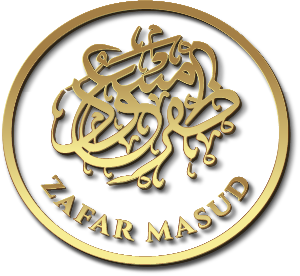
Zafar Masud delivered a comprehensive speech on the life and work of the renowned Urdu poet, Jaun Elia. He praised the speakers for their insightful presentations, particularly highlighting their understanding of Elia’s prose writing and its significance.
Masud shared personal anecdotes and observations about Jaun Elia, emphasizing his complex personality and unique perspective on life and love. He discussed Elia’s relationship with his family, his intellectual pursuits, and his contributions to Urdu literature.
Masud shared personal anecdotes and observations about Jaun Elia, emphasizing his complex personality and unique perspective on life and love. He discussed Elia’s relationship with his family, his intellectual pursuits, and his contributions to Urdu literature.
Key points from the speech include:
- Jaun Elia’s prose writing: Masud highlighted Jaun Elia’s involvement in the scholarly digest and his contributions to Urdu prose.
- Family influences: Elia’s father, Shafiq Hasan Ilya Sahab, and his elder brother, Mohammad Abbas Saheb, had a significant influence on his development as a poet.
- Jaun Elia’s unique perspective: Masud described Jaun Elia as a “Malang” (a wandering ascetic) and a “dervish” (a Sufi mystic), emphasizing his unconventional approach to life and his deep philosophical insights.
- Jaun Elia’s poetry: Masud praised Jaun Elia’s ability to connect with younger generations through his simple language and relatable themes. He also discussed Elia’s contradictory nature and his outspokenness on social and political issues.
- Jaun Elia’s love life: Masud revealed that many of Elia’s love affairs were fictional and that his concept of love was complex and unconventional.
See also: A Dialogue by Zafar Masud at Faisalabad Literary Festival 2022
Jaun Elia: A Timeless Voice in Urdu Literature
A Legacy of Social Commentary
Jaun Elia was a fearless advocate for social justice, using his poetry as a powerful tool to challenge the status quo and expose the injustices of society. He was particularly critical of the hypocrisy and corruption that plagued Pakistani society during his lifetime. Elia’s poetry often addressed issues such as poverty, inequality, and the abuse of power, and he did not hesitate to name names and point fingers at those who he believed were responsible for these problems.
Elia’s commitment to social justice was rooted in his deep empathy for the suffering of others. He was a champion of the underprivileged and the marginalized, and he used his poetry to give voice to those who were often ignored or silenced. Elia’s willingness to speak truth to power and his unwavering belief in the dignity of all people made him a respected figure among his peers and a source of inspiration for future generations of poets and activists.
A Master of Language
Elia’s mastery of the Urdu language was unparalleled. His ability to use language with precision, poetic beauty, and evocative power was evident in his work. He was a master of metaphor, simile, and other literary devices, and he used these tools to create vivid and memorable imagery. Elia’s language was both simple and profound, accessible to a wide range of readers while also challenging and stimulating the intellect. He had a unique ability to convey complex emotions and ideas in a way that was both relatable and thought-provoking.
A Complex and Fascinating Figure
Jaun Elia was a complex and fascinating figure who left an indelible mark on Urdu literature. His poetry, with its blend of simplicity and profound insights, continues to inspire and captivate readers. Zafar Masud’s speech offered a valuable perspective on Elia’s life and work, highlighting his enduring impact on Urdu literature and his relevance to contemporary readers.
Elia’s poetry was a reflection of his own complex personality. He was a man of contradictions, both arrogant and humble, idealistic and cynical. His poetry often explored the darker side of human nature, but it also contained moments of hope and beauty. Elia’s ability to capture the full range of human experience in his work made him a truly exceptional poet.
Masud’s speech provided valuable insights into Elia’s life and work, shedding light on his influences, his creative process, and his impact on Urdu literature. His analysis of Elia’s poetry was insightful and thought-provoking, helping to deepen our understanding of the poet’s work.
In conclusion, Jaun Elia was a complex and fascinating figure who left a lasting legacy on Urdu literature. His poetry, with its blend of simplicity and profound insights, continues to inspire and captivate readers. Zafar Masud’s speech offered a valuable perspective on Elia’s life and work, highlighting his enduring impact on Urdu literature and his relevance to contemporary readers.
A Timeless Voice
Elia’s poetry transcends time and borders, resonating with readers from diverse backgrounds and cultures. His exploration of universal themes, such as love, loss, and the human condition, has ensured his enduring appeal. Elia’s ability to capture the complexities of the human experience in a way that is both relatable and thought-provoking has made him a timeless voice in Urdu literature. His poetry speaks to the heart and mind, evoking emotions and stimulating thought in ways that few other poets can.
Elia’s language is both accessible and profound, allowing readers of all levels to connect with his work. His use of vivid imagery and evocative language creates a world that is both familiar and strange, inviting readers to explore the depths of their own experiences. Elia’s poetry is a testament to the power of language to transcend cultural and linguistic barriers, and to connect with people on a deep and meaningful level.
A Legacy of Intellectual Depth
Elia’s intellectual depth was evident not only in his poetry but also in his prose. He was a voracious reader and a keen observer of the world around him, and he brought his knowledge and insights to bear on his work. Elia’s poetry is often characterized by its intellectual sophistication and its exploration of complex philosophical ideas. He was particularly interested in existentialist philosophy, and his work often reflects his grappling with questions of meaning, purpose, and the nature of human existence. Elia’s poetry also draws on a wide range of other intellectual influences, including Eastern and Western philosophy, religion, and mythology. His ability to synthesize these diverse sources of knowledge and to apply them to his poetic practice is a testament to his intellectual depth and originality.
A Champion of the Underprivileged
Elia’s unwavering commitment to social justice was rooted in his deep empathy for the suffering of others. He saw the world through the eyes of the underprivileged, and he used his poetry to give voice to their struggles. Elia’s poetry is filled with powerful images of poverty, inequality, and injustice, and he does not shy away from condemning those who are responsible for these problems. He was a champion of the marginalized, and he used his poetry to challenge the status quo and to demand a more just and equitable society. Elia’s commitment to social justice was not just a passing phase; it was a central part of his identity as a poet and as a human being. His legacy serves as a reminder of the importance of using one’s voice to speak out against injustice and to promote social change.
A Beacon of Inspiration
Jaun Elia’s poetry continues to be a beacon of inspiration for aspiring poets and writers. His work demonstrates the power of language to convey complex emotions and ideas in a meaningful and impactful way. Elia’s legacy serves as a reminder of the importance of using one’s voice to speak out against injustice and to promote social change. His poetry challenges us to think critically, to question the status quo, and to strive for a better world. Elia’s unwavering belief in the power of the individual to make a difference is a source of inspiration for all who seek to create positive change in their communities and in the world.
A Timeless Classic
Jaun Elia’s poetry has earned its place among the classics of Urdu literature. His work will continue to be studied and appreciated for generations to come. Elia’s legacy is a testament to the enduring power of poetry to touch hearts and minds and to leave a lasting impact on the world. His poetry is more than just a collection of words; it is a reflection of the human experience in all its complexity and beauty. Elia’s ability to capture the essence of human nature and to express it in a way that is both timeless and relevant is a testament to his genius as a poet.
Elia’s poetry is a testament to the power of the human spirit to endure hardship, to find meaning in the face of suffering, and to hope for a better future. It is a reminder that even in the darkest of times, there is always light to be found. Elia’s poetry is a source of comfort, inspiration, and hope, and it will continue to resonate with readers for generations to come.
Overall, Masud’s speech provided a valuable insight into the life and work of Jaun Elia, highlighting his unique contributions to Urdu literature and his enduring legacy.
